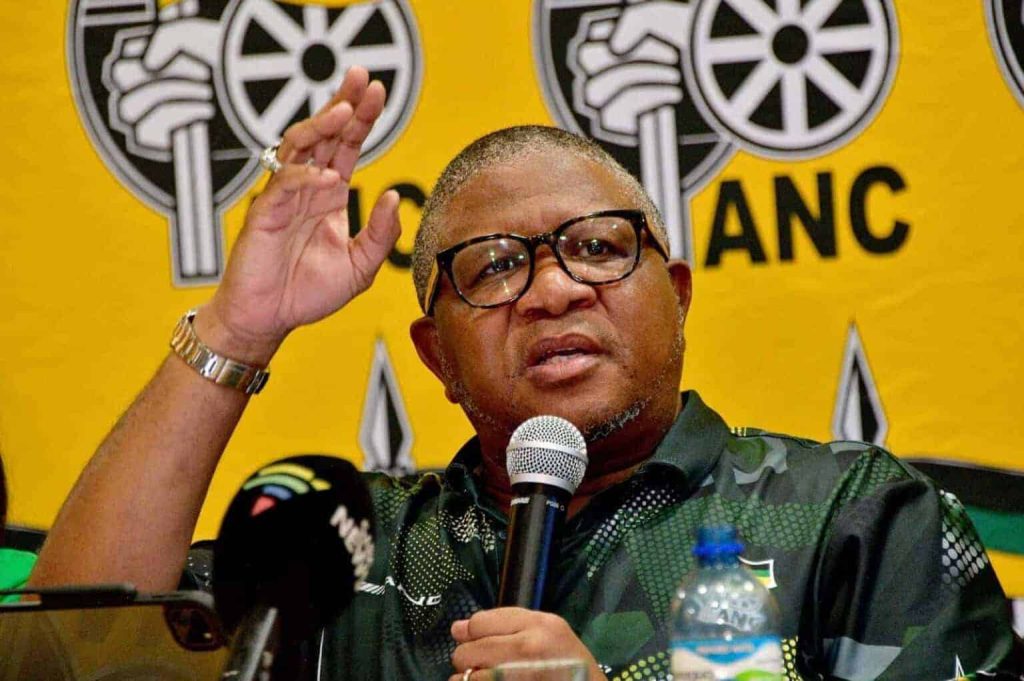The African National Congress (ANC) is standing resolute in the face of mounting tensions with the United States, driven by what it perceives as a misinformation campaign regarding South Africa’s policies. Following a four-day National Executive Committee (NEC) meeting held in Germiston last week, party leaders voiced their commitment to continue with transformative economic measures despite recent challenges, including the US’s imposition of 30 percent tariffs that threaten to jeopardise South Africa’s access to the lucrative US market.
In a media briefing at the ANC’s headquarters, Luthuli House, Secretary-General Fikile Mbalula conveyed the party’s discontent with the US’s demands, labelling them as “impossible” to fulfil. He suggested that these pressures were being exacerbated by the Democratic Alliance (DA) and its affiliates, who have long decried the ANC’s economic policies and sought external intervention from foreign powers.
- “We cannot agree to that. It’s not possible to agree to that. You are asking us to abandon what we stand for,” Mbalula asserted, emphasising the party’s determination to uphold the principles of black economic empowerment and affirmative action despite international pressure.
- The ANC has been engaged in an evolving dialogue about its transformation agenda, even moving to broaden their policies to include historically less disadvantaged groups, such as white women, amid critiques regarding the implementation of black economic empowerment measures.
- Mbalula highlighted that the accusations of ‘race-based laws’ and allegations of a ‘white genocide’ were unfounded and part of a larger pattern of misinformation propagated by opposition elements, specifically the DA and right-wing entities.
Further complicating this foreign relations dynamic, the ANC has been compelled to consider alternative trade markets to counterbalance the potential economic fallout from its recent exclusion from the African Growth and Opportunity Act (AGOA). As the US remains South Africa’s largest trading partner, the impact of the tariffs, if sustained, could significantly obstruct South African exports.
Mbalula strongly dismissed the characterisation of the ANC as anti-transformation, suggesting that these attacks reflect more on the DA and its partners. He stated, “If we are punished for advancing and defending South Africa, that should be the case,” reinforcing the party’s steadfast stance on its socio-economic policies.
The ANC’s continued efforts to reshape public perception and clarify its positions come amid a broader context of a global economic environment that is increasingly sensitive to domestic policy decisions. The party’s leadership insists on its commitment to transformation, resilience in the face of adversity, and an unwavering defence of its values, even when confronted with international sanctions.



